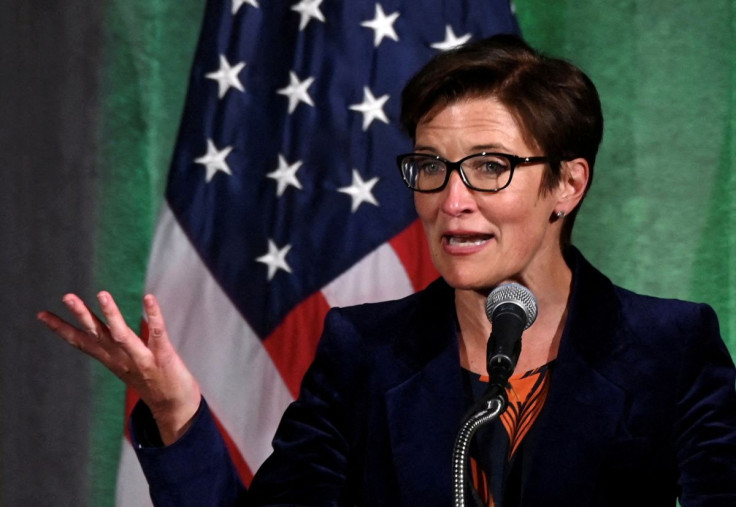Citi CEO Sees Recession More Likely In Europe Than U.S

Citigroup Inc Chief Executive Jane Fraser said on Friday that Europe was more likely than the United States to slip into a recession, as she joined other global bank CEOs this week to warn about the health of the global economy.
Fraser, head of the third-largest and most globally focused U.S. bank, recently returned from a world tour with stops in Asia, Europe and the Middle East, where she said her conversations focused on "the three Rs."
"It's rates, it's Russia and it's recession," Fraser said, speaking at an investor conference in New York.
But Fraser said in Europe, "the energy side was really having an impact on a number of companies in certain industries that are not even competitive right now."
"Because of the cost of electricity and the cost of energy, some of them are shutting down operations. So Europe definitely felt more likely to be heading into a recession than you see in the U.S.," Fraser added.
Fraser said in the United States, the question is more about interest rates than recession.
"It's certainly not our base case that it will be, but it's not easy to avoid either," Fraser added.
On Wednesday, JPMorgan & Chase Co's Chairman and Chief Executive Jamie Dimon described the challenges facing the U.S. economy as akin to a "hurricane," while Goldman Sachs President and Chief Operating Officer John Waldron said on Thursday the current economic turmoil is one of the most challenging he has ever faced.
Tesla Inc CEO Elon Musk added to the downbeat sentiment, saying he has a "super bad feeling" about the economy and needs to cut about 10% of jobs at the electric carmaker, in a message sent on Thursday titled "pause all hiring worldwide."
However, Cleveland Federal Reserve Bank President Loretta Mester told CNBC on Friday that she doesn't see a "hurricane" ahead, but "we have to realize that the risks of recession have gone up."
Major central banks, already plotting interest rate hikes in a fight against inflation, are also preparing a common pullback from key financial markets in a first-ever round of global quantitative tightening expected to restrict credit and add stress to an already-slowing world economy.
"It feels like the ECB is a few months behind where the Fed has been in getting its arms around inflation and without quite the same flexibility that U.S. has," Fraser said, referring to the European Central Bank.
The U.S. job market stayed strong in May, data on Friday showed, with employers hiring more workers than expected and maintaining a fairly strong pace of wage increases. U.S. stock indexes fell on Friday as the solid jobs report supported the view that the Federal Reserve would continue on its aggressive policy tightening path to cool decades-high inflation.
"When we look at what the clients are talking to us about from a macro perspective, I think the confidence is still pretty good amongst the CEOs and the CFOs," Fraser added.
Fraser said she also expects U.S. equity markets to enter a period of less volatility and for the Chinese government to launch a fresh round of fiscal stimulus in the coming months, as that country begins to open up from COVID-19 pandemic-related lockdowns.
In China, Fraser said she "wouldn't be surprised to see action taken on fiscal stimulus."
© Copyright Thomson Reuters 2024. All rights reserved.





















